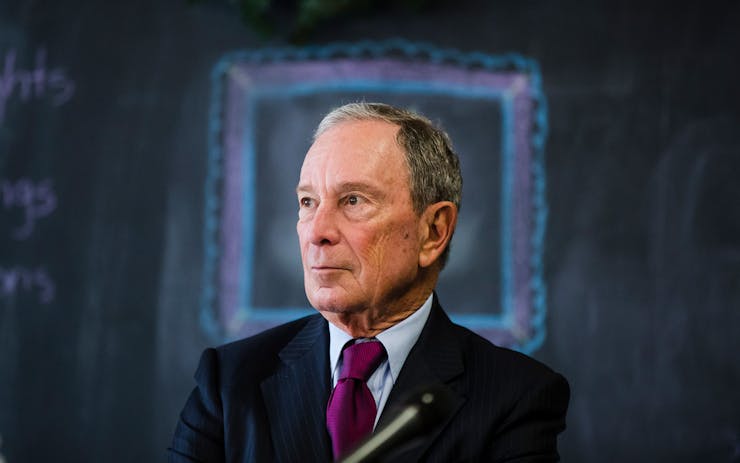Here’s one way to stand out in a crowded pack of Democratic presidential candidates: Go on the radio and shoot yourself in the foot.
Former New York mayor and one-time presidential candidate Michael Bloomberg blasted cannabis law reform efforts Tuesday.
Bloomberg went on the radio station WBNG and said taxing and regulating cannabis — instead of locking mostly young people of color up for it — “is perhaps the stupidest thing anybody has ever done.”
We could think of stupider things, like mulling a presidential run after calling most voters stupid for supporting legalization by 61 percent in the US, and 75 percent among Democrats. Ten states have ended the marijuana war. More than one in five Americans live in a legal adult-use state.
More dangerously, Bloomberg tied liberalization of cannabis — which has no lethal overdose level — to America’s opioid overdose epidemic, echoing former Attorney General Jeff Sessions’ talking points.
“Last year, in 2017, 72,000 Americans OD’d on drugs,” Bloomberg said. “In 2018, more people than that are OD-ing on drugs, have OD’d on drugs, and today, incidentally, we are trying to legalize another addictive narcotic, which is perhaps the stupidest thing anybody has ever done.”
That might be a catchy radio sound bite, but it misleads citizens. First, cannabis is not a narcotic. Studies conclude cannabis carries less risk for psychological addiction — or physical dependence — than more toxic, legal drugs such as nicotine and alcohol, let alone legal opioids (which are narcotics). Still, the federal government deems cannabis more medically useless and far riskier than opioid drugs like vicodin and codeine.
In terms of dependence, cannabis withdrawal is considered “mild and medically benign.” By contrast, alcohol withdrawal can be deadly.
As for trouble stopping use, someone who uses cannabis might have a nine percent chance of developing a cannabis use disorder at one point in their lives, a fraction of the addiction risk of other drugs.
Bloomberg has said he would fight cannabis legalization through Bloomberg Philanthropies — part of a broad public health agenda that has included taxing sugary drinks as mayor of New York.
Bloomberg’s comments further isolate him among prominent Democrats, including the current governor of New York state and the mayor of New York City, who have outlined terms for ending the war on cannabis. Most of his potential opponents in the Democratic primary for the 2020 election have also voiced support for national cannabis law reform.





